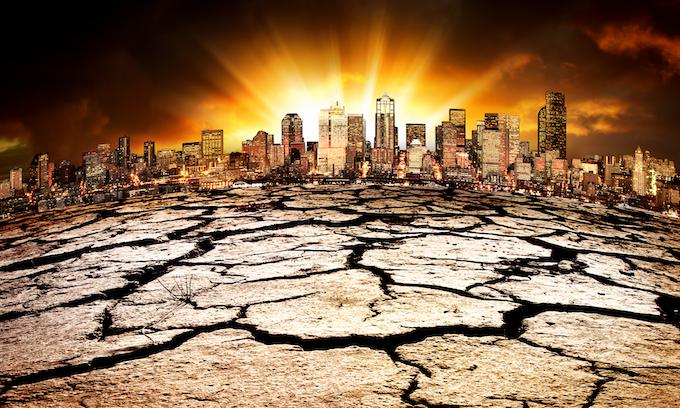Just as busy people are ready for a well-deserved break from midsummer’s heat and humidity, the foretellers of global warming have burst forth with warnings that without drastic action, there will be no escape. Climate is a common concern the year ’round, but notions about preserving its natural balance track seem to rise with the temperature. The sensationalizing of heat waves and the disincentivizing of meat consumption as a cooling scheme are ideas of value for entertainment, but not for implementation.
This summer’s unseasonably hot weather in the British Isles has prompted wags at the London School of Economics to contend that heat waves should be given names, like hurricanes, as a means of ramping up the public’s concern of the state of the climate. Londoners, accustomed to keeping umbrellas handy to ward off chilly drizzle, have watched the mercury approach 100 degrees Fahrenheit in recent weeks, and the Met Office has warned that night-time temperatures of 75 could make sleeping uncomfortable.
Founder and CEO of the worldwide weather forecasting service AccuWeather Joel Myers finds this proposal, well, silly. Taking to AccuWeather’s blog, he writes: “Although average temperatures have been higher in recent years, there is no evidence so far that extreme heat waves are becoming more common because of climate change, especially when you consider how many heat waves occurred historically compared to recent history.”
Mr. Myers points out that 26 of the 50 U.S. states experienced their all-time high temperature during the 1930s, and another 11 states suffered their highs prior to that decade: “Given these numbers and the decreased frequency of days of 100 degrees or higher, it cannot be said that either the frequency or magnitude of heat waves are more common today.”
The rationale for naming supposed summer heat waves appears sketchy, but we see nothing wrong with doing so. Perhaps willing climatologists could auction the right to name the hot days on eBay. If the practice becomes lucrative, there might be a similar fortune to be made selling the rights to naming cloud formations. They, at least, are visible.
Eggheads at the United Nations have chosen the silly season to urge human beings across the globe to save the planet by curbing their taste for meat. Efforts to reduce greenhouse-gas emissions, to which cattle are said to contribute the lion’s share, will supposedly come up short without wholesale changes in food production and the human diet.
“We don’t want to tell people what to eat,” Hans-Otto Portner, an ecologist who contributed to a climate change report for the world body, told the journal Nature. “But it would indeed be beneficial, for both climate and human health, if people in many rich countries consumed less meat, and if politics would create appropriate incentives to that effect.”
Germany qualifies as a rich country, and lawmakers there are already considering ways of curbing its citizens’ taste for meat. Members of the Green Party and Social Democrats are teaming up to propose raising the tax on beef, pork and chicken from 7 percent to 19 percent. Presumably, only wealthy citizens would be able to indulge their taste for sauerbraten and wiener schnitzel.
If 83 million Germans wish to make meat too dear to eat, it’s their business. More than 3 billion people worldwide are vegetarians not owing to concern over the impact of livestock-generated emissions on global warming — but because living on less than $2.50 a day, meat is off the menu. On the day they can afford a Big Mac, dollars to donuts says they won’t be ordering a garden salad.
If Americans were to join the Germans in making meat less appetizing, they would likewise save a little money on their food bill, and an extra jingle in the pocket is a good thing. As environmental realist Bjorn Lomborg points out in USA Today, though, dollars that vegans save “will likely be spent on other goods and services that cause extra greenhouse gas emissions,” an example of the “rebound effect.” A lifetime of eating greens, he says, only reduces an individual’s emissions by about 2 percent. Those drawn to saving the world might accomplish more by reducing hunger rather than temperatures.
The silly season will pass with the coming of fall. Hopefully, cooler heads will prevail and dream up more effective means of preserving the natural climate of Planet Earth.
© Copyright (c) 2019 News World Communications, Inc.
—-
This content is published through a licensing agreement with Acquire Media using its NewsEdge technology.


















Recent Comments